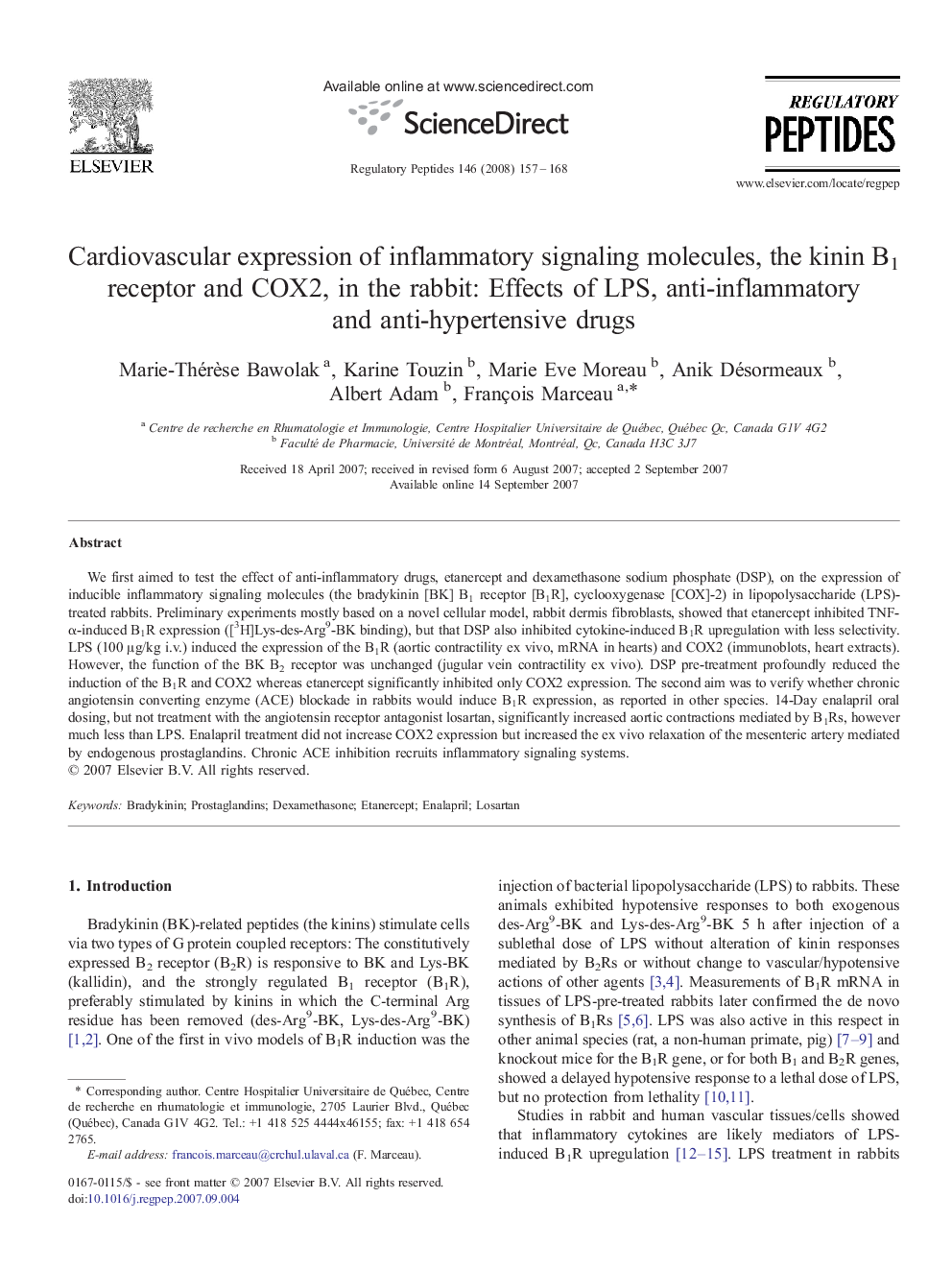| Article ID | Journal | Published Year | Pages | File Type |
|---|---|---|---|---|
| 2023235 | Regulatory Peptides | 2008 | 12 Pages |
We first aimed to test the effect of anti-inflammatory drugs, etanercept and dexamethasone sodium phosphate (DSP), on the expression of inducible inflammatory signaling molecules (the bradykinin [BK] B1 receptor [B1R], cyclooxygenase [COX]-2) in lipopolysaccharide (LPS)-treated rabbits. Preliminary experiments mostly based on a novel cellular model, rabbit dermis fibroblasts, showed that etanercept inhibited TNF-α-induced B1R expression ([3H]Lys-des-Arg9-BK binding), but that DSP also inhibited cytokine-induced B1R upregulation with less selectivity. LPS (100 μg/kg i.v.) induced the expression of the B1R (aortic contractility ex vivo, mRNA in hearts) and COX2 (immunoblots, heart extracts). However, the function of the BK B2 receptor was unchanged (jugular vein contractility ex vivo). DSP pre-treatment profoundly reduced the induction of the B1R and COX2 whereas etanercept significantly inhibited only COX2 expression. The second aim was to verify whether chronic angiotensin converting enzyme (ACE) blockade in rabbits would induce B1R expression, as reported in other species. 14-Day enalapril oral dosing, but not treatment with the angiotensin receptor antagonist losartan, significantly increased aortic contractions mediated by B1Rs, however much less than LPS. Enalapril treatment did not increase COX2 expression but increased the ex vivo relaxation of the mesenteric artery mediated by endogenous prostaglandins. Chronic ACE inhibition recruits inflammatory signaling systems.
